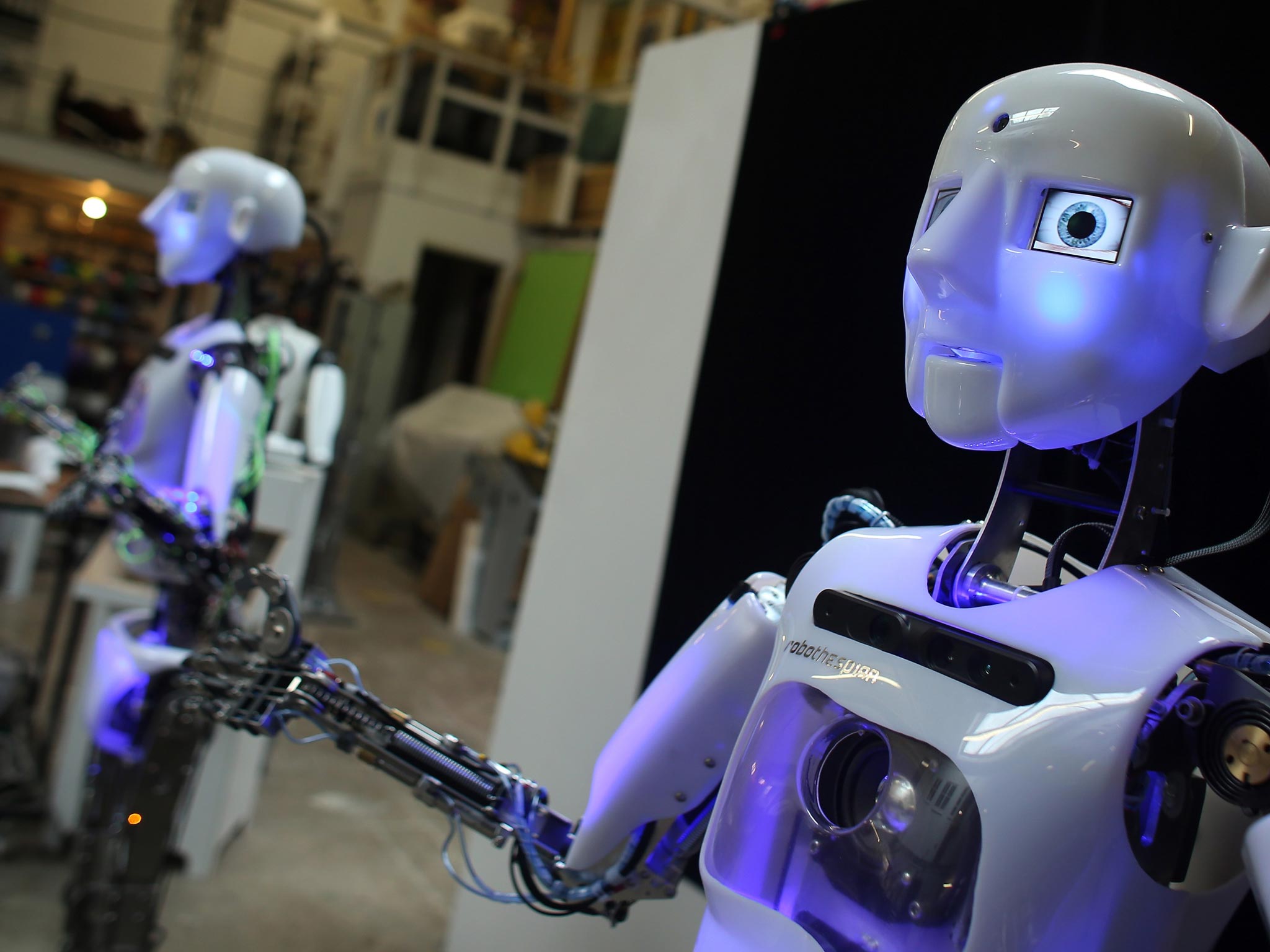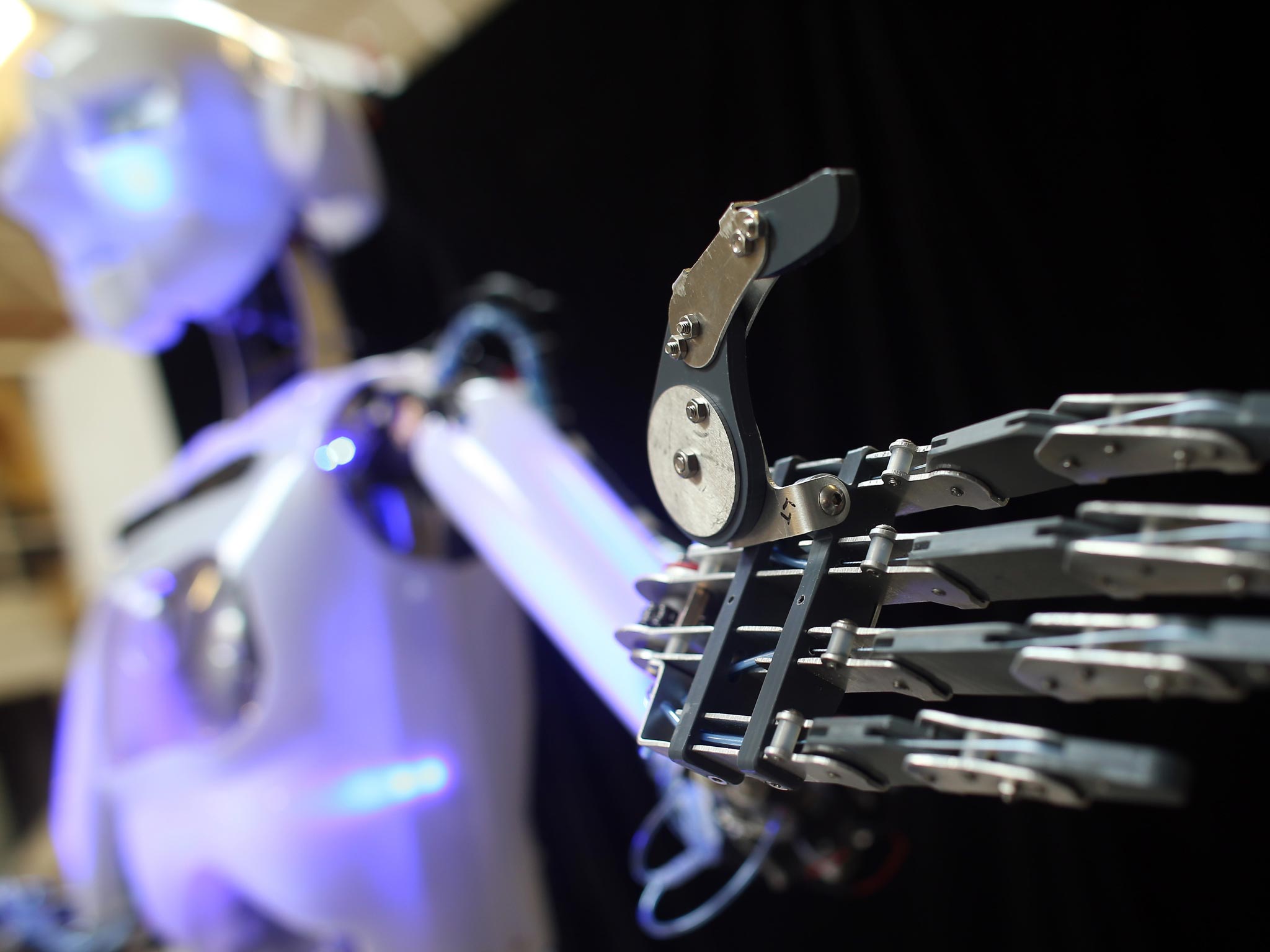Robots must learn to value humans or 'they could kill us out of kindness'
A leading futurist claims super-intelligent robots could decide destroying the human race is the kindest thing to do

Robots should be taught to appreciate human value to ensure they do not one day “kill us out of kindness”, a leading futurist has warned.
Nell Watson told The Conference in Malmo, Sweden, that robots will soon reach the stage where they have the same level of cognition as a bumblebee, creatures which are both socially aware and can navigate their way around their environment.
This advancement in artificial intelligence will be the first example of machines exhibiting ‘system one’ thinking used by humans to develop assumptions about the world around them.
Robots currently use 'system two' intelligence systems which rely on rules, according to Wired.
Ms Watson said the emergence of system one robots will create “huge change” in society globally. House-holds will have domestic-help robots and self-driving cars, while professions such as stockbroking, law and medical analysis will be undertaken by robots, not humans.
However, Ms Watson expressed concerns over super-intelligent robots. "I can't help but look at these trends and imagine how then shall we live?” she said. “When we start to see super-intelligent artificial intelligences are they going to be friendly or unfriendly?"
It would not be enough to teach robots benevolence, as they may decide destroying the human race is the kindest thing they could do.
"The most important work of our lifetime is to ensure that machines are capable of understanding human value," said Ms Watson. "It is those values that will ensure machines don't end up killing us out of kindness."

Her words of caution come after Stephen Hawking warned that while the rapid progress in artificial-intelligence (AI) research could be best thing that happened to humanity, it could also be the worst.
Writing in The Independent, he said that while it's tempting to dismiss the notion of highly intelligent machines as science fiction, "this would be a mistake, and potentially our worst mistake in history".
The development of robots also sparked concerns earlier this year when Human Rights Watch warned 'killer robots' could “jeopardise basic human rights” as the United Nations held its first ever multinational convention on lethal autonomous weapons systems.
So-called killer robots are autonomous machines able to identify and kill targets without human input. Fully autonomous weapons have not yet been developed but technological advances are bringing them closer to fruition.
Join our commenting forum
Join thought-provoking conversations, follow other Independent readers and see their replies
Comments
Bookmark popover
Removed from bookmarks